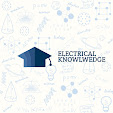AMR[AUTOMATIC METER READING]
AMR[AUTOMATIC METER READING]
WHAT IS A AMR?
Automatic
meter reading, or AMR, is the technology of automatically collecting
consumption, diagnostic, and status data from water meter or energy metering
devices (gas, electric) and transferring that data to a central database for
billing, troubleshooting, and analyzing. This technology mainly saves utility
providers the expense of periodic trips to each physical location to read a
meter. Another advantage is that billing can be based on near real-time
consumption rather than on estimates based on past or predicted consumption.
This timely information coupled with analysis can help both utility providers
and customers better control the use and production of electric energy, gas
usage, or water consumption.
ADVANCED AMR
Advanced
Metering Infrastructure or AMI is the new term coined to represent the
networking technology of Fixed network meter systems that go beyond AMR into remote
utility management. The meters in an AMI system are often referred to as smart
meters since they often can use collected data based on programmed logic.
Originally AMR devices just collected meter readings electronically and matched them with accounts. As technology has advanced, additional data could then be captured, stored, and transmitted to the main computer, and often the metering devices could be controlled remotely.
1. This can include events alarms such as tamper, leak detection, low battery, or reverse flow. Many AMR devices can also capture interval data, and log meter events.
2. The logged data can be used to collect or control time of use or rate of user
data that can be used for water or energy usage profiling, time of use billing,
demand forecasting, demand response, rate of flow recording, leak detection,
flow monitoring, water, and energy conservation enforcement, remote shutoff,
etc.
AMR TECHNOLOGIES INCLUDE
1.
HANDHELD
2.
MOBILE
3.
NETWORK TECHNOLOGIES BASED ON TELEPHONY PLATFORMS [WIRED AND WIRELESS]
4.
POWERLINE TRANSMISSION
BENEFITS
OF ADVANCED METERING
Advanced
metering systems can provide benefits for utilities, retail providers, and
customers. Benefits will be recognized by the utilities with increased
efficiencies, outage detection, tamper notification, and reduced labor cost as
a result of automating reads, connections, and disconnects. Retail providers
will be able to offer new innovative products in addition to customizing
packages for their customers. In addition, with the meter data being readily
available, more flexible billing cycles would be available to their customers
instead of following the standard utility read cycles. With timely usage information
available to the customer, benefits will be seen through opportunities to
manage their energy consumption and change from one provider to another with
actual meter data.
The
benefits of smart metering for the utility.
1.
Accurate meter reading, no more estimates
2.
Improved billing
3.
true costs applied
4.
Improved security and tamper detection for equipment
5.
Energy management through profile data graphs
6.
Less financial burden correcting mistakes
7.
Less accrued expenditure
DISADVANTAGES OF ADVANCED METERING
The utility can control the amount allocated to users.
1.
Utility can remotely shut off users.
2.
Loss of privacy - details of use reveal information about user activities
3.
Greater potential for monitoring by other/unauthorized third parties


No comments:
If you have any doubts, please let me know